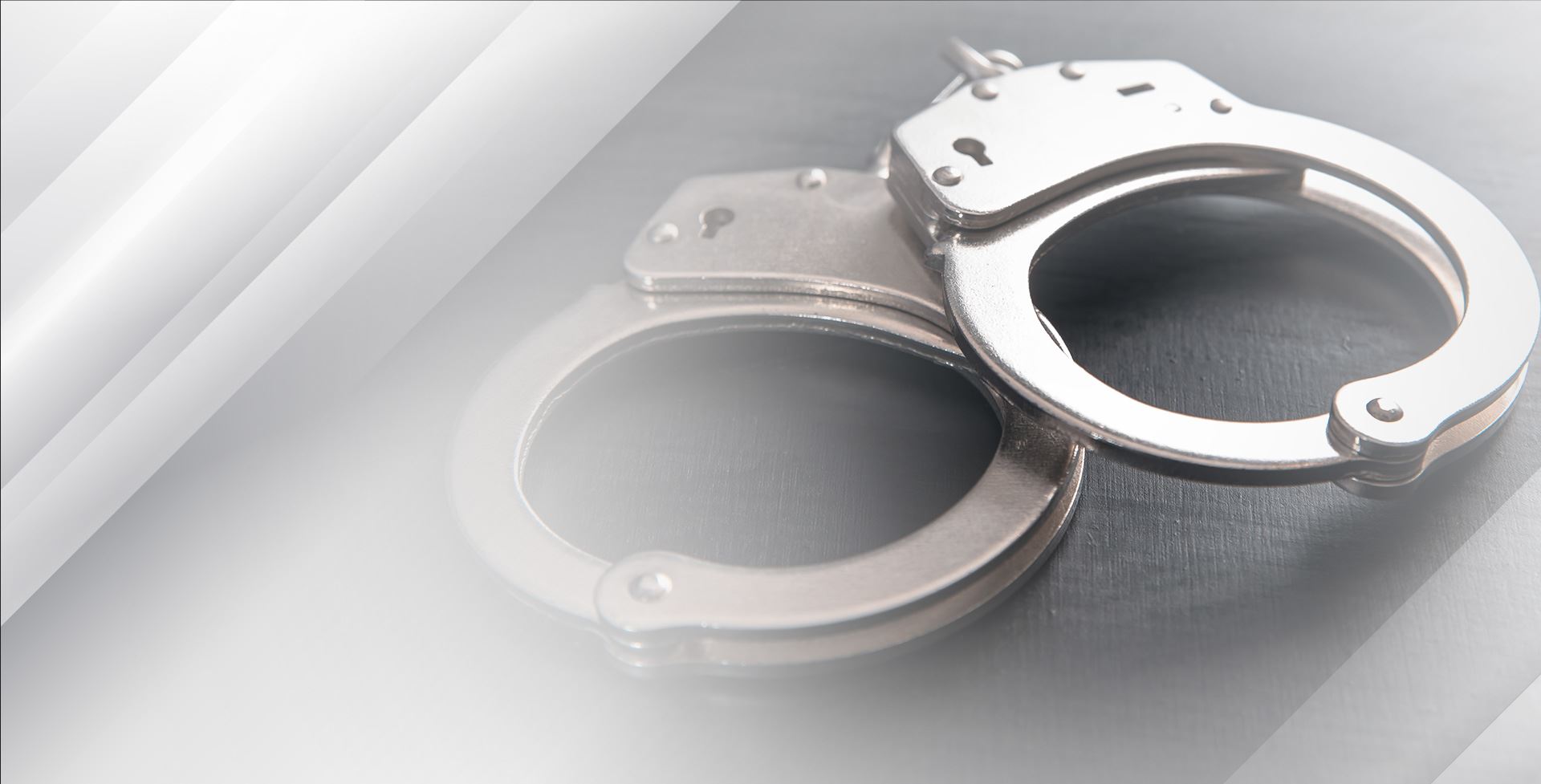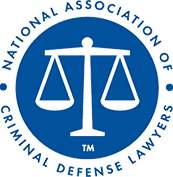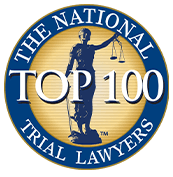
Healthcare Fraud Lawyer in Orange County, CA
Also Serving Nationwide Clients in Federal Fraud Cases
Healthcare billing can be incredibly complex, causing unintentional mistakes. It can be premature to believe that any issue relating to discrepancies in healthcare expenses and insurance coverage is due to fraud. In many cases, investigations must take place to determine whether a simple error was committed or if the actions of a patient, doctor, insurer, or supplier were fraudulent.
Patients, physicians, and the federal government can accuse healthcare providers of fraud when no criminal wrongdoing has occurred. These accusations can leave a lasting negative stain on one’s reputation. The government has especially targeted those in the health industry for violations of state or federal laws.
The Department of Health and Human Services (DHHS) and the Drug Enforcement Agency (DEA) seek any perceived legal issue by which they can accuse a healthcare provider of criminal offenses resulting in federal charges.
At Law Office of Diane C. Bass, Ms. Bass is one of Southern California's most highly respected fraud defense attorneys. Her clients and fellow defense lawyers respect her as an attorney who gives each case dedicated personal attention while pursuing a winning outcome or plea bargain.
As in other criminal defense law firms, Ms. Bass is bound by a confidential attorney-client relationship, meaning you can feel safe in confiding the truth of your case to her. We represent clients across Orange County and other Southern California jurisdictions and in federal cases nationwide. We offer new clients a one-hour consultation to discuss the particulars of their healthcare fraud investigation, arrest, or charges.
You must seek legal advice if you, your family, or your business face a legal crisis related to healthcare fraud. Turning to a defense lawyer with exceptional knowledge of state or federal healthcare violations and defense is essential. Whether you are guilty or are a victim of a false claim, you must understand that the prosecution will pursue the harshest consequences allowed under the law. At the federal level, these penalties can be life-changing.
Reserve your consultation appointment with our Orange County healthcare fraud attorney by calling us at (949) 990-4195. Or email us using our online contact form.
Overview of Healthcare Fraud
Few industries in America are targeted more by federal law than healthcare. While it is true that some misconduct and fraud occur due to healthcare providers' actions, accusations can be based on simple misunderstandings and minor errors in paperwork and billing expenses.
Examples of healthcare fraud include:
- Anti-kickback statute violations, such as accepting money unlawfully.
- Billing fraud, including billing someone who is not a patient, billing for hours where no services were performed, billing for services or devices that were not necessary, or billing more than once for the same service or device.
- Department of Labor fraud.
- Falsifying doctor credentials.
- Falsifying healthcare reports.
- Falsifying patient records.
- Forging doctor’s orders or prescriptions.
- Illegally sharing fees.
- Medicaid fraud.
- Medicare fraud.
- Ordering medication without doctor approval.
- Patients receiving medical services for which they were not qualified or were deemed unnecessary.
- Prescribing medicine illegally and unethically.
- Providing unnecessary medical services, medicines, or supplies.
- Selling illegal or fake medicines.
- Stark law violations (physician self-referral).
- Stealing medicine or healthcare supplies.
- Violating the Controlled Substances Act.
If doctors or other healthcare providers illegally sell prescriptions, they can face harsh penalties under the law. Patients or doctors can attempt to bill insurance companies for services they do not cover or allow, resulting in accusations.
Hospitals sometimes purchase medical supplies that are not needed and bill them to an insurance healthcare benefit program while never actually providing those supplies to patients. Other times, a healthcare benefit program may be billed for services never rendered to medical office patients.
Many healthcare fraud charges are filed as conspiracies, as they typically require the planning and cooperation of multiple individuals to see the scheme to fruition. Healthcare fraud charges may also be linked to other types of fraud, such as wire or mail fraud and white collar crimes like money laundering.
Potential Consequences of Medicare & Medicaid Fraud
Medicare and Medicaid fraud can attract severe penalties, depending mainly on the magnitude of the alleged fraud and the specific details of the case.
Individuals, as well as institutions involved in such fraudulent activities, could face:
- Criminal charges: Significant fines and the potential for lengthy prison sentences are outcomes for those convicted of Medicare or Medicaid fraud. These charges range from misdemeanors for more minor offenses to felonies for more significant fraud cases.
- Civil penalties: In addition to criminal prosecution, you may be subject to civil penalties, including substantial fines and damages. The government may impose fines for each instance of fraudulent billing and treble damages, which means the government can recover three times the amount of the fraudulent claims.
- Exclusion from Medicare and Medicaid: Conviction can result in exclusion from participation in Medicare, Medicaid, and other federal health programs. This can be a career-ending consequence for medical professionals and a death sentence for healthcare businesses that rely heavily on reimbursements from these programs.
- Reputational damage: The reputational harm that comes with being accused or convicted of healthcare fraud cannot be overstated. Professional reputations, built over years or even decades, can be irreparably damaged, affecting future employment and professional relationships.

How Do Federal Government Agencies Prosecute Healthcare Fraud?
Federal task forces perform investigations with the express purpose of detecting offenses and filing fraud charges. If such a task force has set its eyes on you, suspecting potential healthcare fraud, you must immediately speak with a lawyer experienced with fraud defense. At Law Office of Diane C. Bass, Orange County healthcare fraud defense lawyer Diane C. Bass is experienced with taking on federal prosecutors.
The federal government organizations involved in investigations into fraud against the healthcare industry include:
- Department of Justice (DOJ)
- Medicaid Fraud Control Units (MFCUs)
- State Medicaid agencies
- The Center for Medicare and Medicaid Services (CMS)
- The Department for Health and Human Services (HHS)
- The Federal Bureau of Investigation (FBI)
- The General Services Administration (GSA)
- The Health Care Fraud Prevention and Enforcement Action Team (HEAT)
- The Office of Inspector General (OIG)
Federal prosecutors must prove certain elements of fraud in a court of law to secure a guilty verdict. These include showing that the defendant intentionally and knowingly sought to defraud other parties in their scheme. Prosecutors must also prove that the defendants knowingly spoke falsely, omitted facts, or misrepresented relevant information to financially benefit from healthcare fraud.
Federal Statutes Related to Healthcare Fraud
Various statutes and rules grant the government power and authority in cases of suspected healthcare fraud.
These laws are at the core of most healthcare fraud investigations.
- The anti-kickback statute. Financially benefiting from an arrangement with a pharmaceutical company or other medical supplier is against the law. The anti-kickback statute applies to both criminal and civil healthcare fraud cases. The line between lawful and unlawful conduct can blur in a country that encourages business success and innovation. Your defense attorney will attempt to show that you entered into any partnership in good faith only.
- The Civil Monetary Penalties Law. The Secretary of HHS can apply additional fines to those guilty of Medicare fraud.
- The Controlled Substances Act. This Act is used against healthcare professionals guilty of committing pharmaceutical fraud and other crimes relating to medicinal drugs. It establishes a set of rules that every practitioner must abide by.
- The Criminal Health Care Fraud Statute. Also known as the Federal Health Care Fraud Statute, this law establishes that it is a crime to seek to defraud any healthcare benefits program knowingly. The statute's perimeters are extremely broad. If federal prosecutors can determine that fraudulent acts have occurred, you may be in violation.
- The False Claims Act. A healthcare professional knowingly or unknowingly making a false claim to Medicare or any other healthcare organization may violate this law. Investigations may determine whether the accused should be held liable for a civil or criminal offense.
- The Stark Law. Violations of this law occur when doctors and physicians are guilty of “self-referral.” The law was established, in part, to regulate how doctors collaborate with labs for tests. The Stark Law could be likened to insider trading within the healthcare field.
Trusted By Clients
Reviews & Testimonials
-
"She will put your anxiety at ease and get you through the tangled system."Diane is the perfect mix of gentle understanding and fierce action you’ll need if you find yourself dealing with the OC court system.- Angie T.
-
"Whatever you’re going through, I’m confident Diane will achieve the best outcome you could hope for."My first impression was that she’s very experienced, no-nonsense, knows the law, how the system works, and was very busy as a result. I quickly realized that she exceeded even those first impressions but also cared very much about my story, needs, an- Daniel B.
-
"From the start of my case, she has been there for me."First of all, I would like to thank Diane for everything she has done for me. From the start of my case, she has been there for me. Only very few people were granted bond and she pulled it off in my case. I know for a fact not too many lawyers could have done that. I am on probation for three years.. while “the others” will not have the chance to raise their children and live their lives. I was headed to prison….I am free.. and for that, I am forever grateful.- John H.
-
"Diane Bass is a phenomenal attorney."After meeting with Diane I felt immediate comfort, and I was sold on the fact that I could trust this amazing person with my life. Diane Bass was there for me every step of the way like no other attorney had ever been.- Ryan O.
-
"She is not afraid to battle for you. With her, you will never be alone."Diane is a brilliant attorney. She listens carefully to your problems and clearly advises you with honesty. She was with me from the first day of my case and I have never been disappointed in any way.- Maria K.
-
"I highly recommend Diane if you are dealing with legal troubles of your own."Since this being my first Federal offense, I had no idea what to expect. I was extremely anxious. After talking to Diane, I felt like she was the attorney I needed to help me get through these challenging times. Her professionalism and knowledge of the law- Adam P.
-
"Diane’s work is second to none."
Diane’s work is second to none. I was charged with felony DV, and after working with one firm in Irvine that did absolutely nothing, I did some hard research and found Diane. She worked quickly and diligently and got the case dismissed. I absolutely don’t foresee me needing a criminal lawyer down the road, but if I do, it’ll be Diane hands down!
- Shadic A. -
"Diane is the most professional, thorough attorney I have ever met."Her expertise, connections, analysis, and comprehensive review of my situation were more than I could ever ask. I am extremely grateful and couldn't be happier with my choice!- Jeff R.


Why Choose Law Office of Diane C. Bass?
-
Top-Rated & Award-Winning Legal RepresentationWe consistently deliver results that exceed expectations, earning the trust of clients and accolades from the legal community.
-
25+ Years of Criminal Defense Legal ExperienceWith over 25 years of criminal defense legal experience, we bring a wealth of seasoned insight and a proven track record of success to every case we handle.
-
Extensive Knowledge & Experience With Federal CasesWith extensive knowledge and experience in federal cases, we offer comprehensive legal strategies tailored to the complexities of each situation.
-
An Outstanding Reputation Amongst Clients & PeersOur reputation among clients and peers alike reflects our unwavering dedication to achieving the best possible outcomes for those we represent.
-
Featured in the MediaAttorney Bass is frequently featured in media outlets such as The Washington Post, LA Times, ESPN, Forbes, the Wall Street Journal and more.
-
Track Record of SuccessWith a track record of handling some of the most significant cases in the Central District of California, our firm brings unmatched experience to every client's defense.




